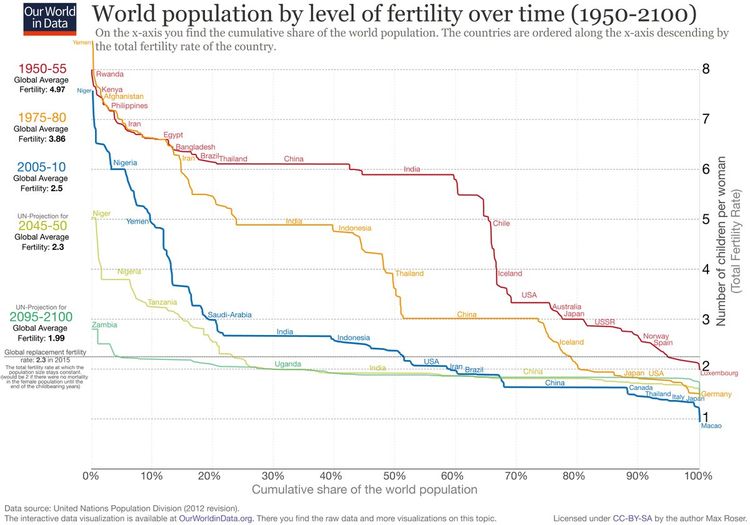Can we come up with a new method of combating overpopulation?
Image credit: Photo by <a href="https://unsplash.com/@yulokchan?utm_source=unsplash&utm_medium=referral&utm_content=creditCopyText">Joseph Chan</a> on Unsplash

Please leave the feedback on this challenge
Necessity
Is the problem still unsolved?
Conciseness
Is it concisely described?
Bounty for the best solution
Provide a bounty for the best solution
Bounties attract serious brainpower to the challenge.
Creative contributions
Reducing fertility rates by increasing the female education level

[1]https://blogs.worldbank.org/health/female-education-and-childbearing-closer-look-data
[2]https://ourworldindata.org/grapher/womens-educational-attainment-vs-fertility
[3]https://www.theatlantic.com/sexes/archive/2013/02/lets-not-panic-over-women-with-more-education-having-fewer-kids/273070/
Please leave the feedback on this idea
Maybe it's not a problem

Please leave the feedback on this idea

Please leave the feedback on this idea
Pass an exam to bear a child

[1]https://www.nytimes.com/1983/10/11/science/children-who-kill-personality-patterns-are-identified.html
Please leave the feedback on this idea
Please leave the feedback on this idea

Please leave the feedback on this idea
Please leave the feedback on this idea
Develop a Fertility-Restricting Drug/Device that can be Administered to Children

Please leave the feedback on this idea

[1]https://www.healthknowledge.org.uk/public-health-textbook/health-information/3a-populations/population-growth
Please leave the feedback on this idea

[1]https://en.wikipedia.org/wiki/One-child_policy#:~:text=Implementation%20of%20the,and%20other%20penalties.
Please leave the feedback on this idea

Please leave the feedback on this idea
Incentivise being sterilized

Please leave the feedback on this idea
Short-term jobs for young people in animal shelters

Please leave the feedback on this idea
Restrict family sizes from growing beyond their capability of providing basic amenities to new born children

Please leave the feedback on this idea

Please leave the feedback on this idea

Please leave the feedback on this idea
Add your creative contribution
General comments

Please leave the feedback on this idea

Please leave the feedback on this idea

Please leave the feedback on this idea

Please leave the feedback on this idea




Please leave the feedback on this idea
Please leave the feedback on this idea